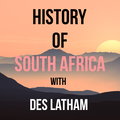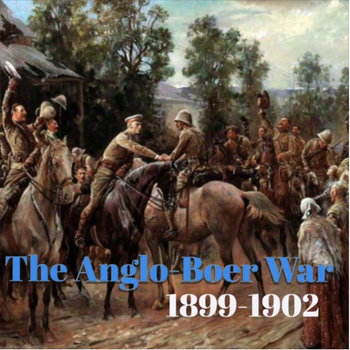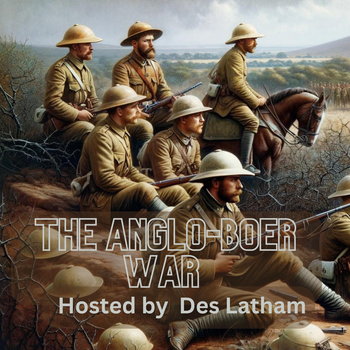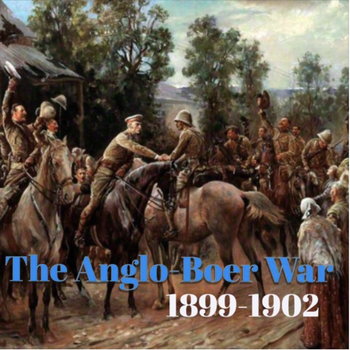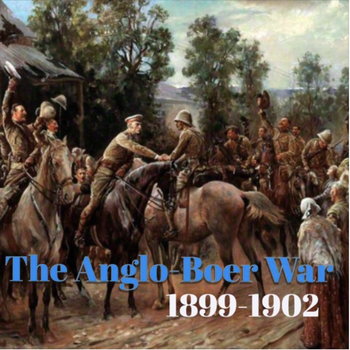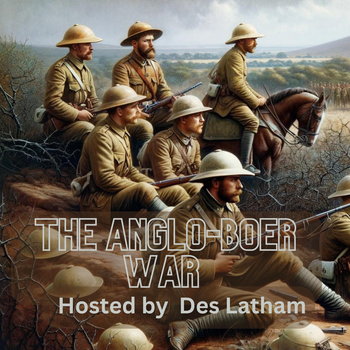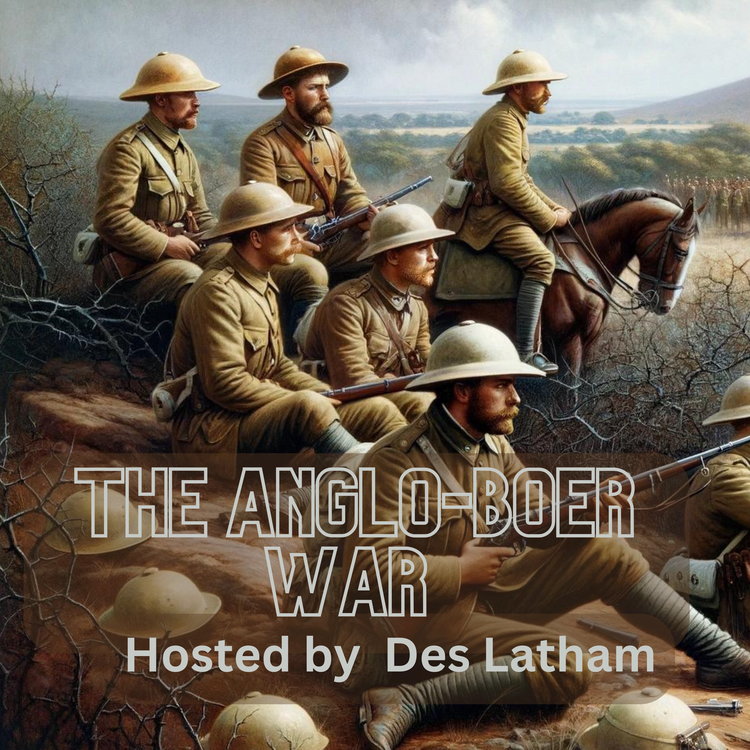
Episode 132 -The Canadians last stand at Boschbult aka Harts River & the Hague suggests peace
Loading player...
There are a few more skirmishes and one more big battle after this period with its frustrations for the British and determination by the Boer die-hards or Bitter einders to continue their war against an empire at its zenith. We will hear about General Christiaan de Wet and Lord Kitchener who are closer physically than at virtually any other time in the war.
Kitchener arrived in the Transvaal town of Klerksdorp on the 26th March, de Wet has evaded Kitchener’s columns and blockhouses in the the Free State and is about to cross over the Vaal River to join General Koos de la Rey. More about that in a while.
What these soldiers don’t know is that there have been peace moves afoot internationally for some time. The Dutch Prime Minister, Abraham Kuyper, had sent a coded message to Lord Landsdowne, the British Foreign Secretary, on January 21st 1902.
As was the case in those days, the language used was French - the language of diplomacy. And in his forthright way, The Hague was offering “en traite de paix” – a peace treaty between the British and Boers.
The Dutch went one step further. They had already worked out a scenario. First the three members of the Boer Delegation which we heard about last year were still in the Netherlands.
They would return to South Africa to confer with Boer leaders then return with an authorisation to conduct peace talks somewhere in the Netherlands.
On the 29th January, Lord Landsdowne replied bluntly that the British government appreciated the humanitarian considerations that inspired the offer, but on principle declined the intervention of foreign powers in the South African war.
Leyds, who was Paul Kruger’s secretary in Holland, heard about Kuypers offer through the newspapers and was not amused.
Why had the Dutch Prime Minister not bothered to confer with him or Kruger? What also angered the Boer emissaries in Europe was the tone adopted by the Netherlands missive.
The letter which failed to call on the British to end an imperialist war nor did it mention the abuses being suffered by Boer women and children in the internment camps.
The Dutch message implicitly urged the Boers to give up a hopeless cause. Worse, that response came at about the same time another arrived from America which was negative.
President Roosevelt told the Boers that his predecessor, McKinley, had offered his services as a mediator and had been turned down flatly by the British. So Roosevelt said any attempt at intervention would be folly.
Kitchener arrived in the Transvaal town of Klerksdorp on the 26th March, de Wet has evaded Kitchener’s columns and blockhouses in the the Free State and is about to cross over the Vaal River to join General Koos de la Rey. More about that in a while.
What these soldiers don’t know is that there have been peace moves afoot internationally for some time. The Dutch Prime Minister, Abraham Kuyper, had sent a coded message to Lord Landsdowne, the British Foreign Secretary, on January 21st 1902.
As was the case in those days, the language used was French - the language of diplomacy. And in his forthright way, The Hague was offering “en traite de paix” – a peace treaty between the British and Boers.
The Dutch went one step further. They had already worked out a scenario. First the three members of the Boer Delegation which we heard about last year were still in the Netherlands.
They would return to South Africa to confer with Boer leaders then return with an authorisation to conduct peace talks somewhere in the Netherlands.
On the 29th January, Lord Landsdowne replied bluntly that the British government appreciated the humanitarian considerations that inspired the offer, but on principle declined the intervention of foreign powers in the South African war.
Leyds, who was Paul Kruger’s secretary in Holland, heard about Kuypers offer through the newspapers and was not amused.
Why had the Dutch Prime Minister not bothered to confer with him or Kruger? What also angered the Boer emissaries in Europe was the tone adopted by the Netherlands missive.
The letter which failed to call on the British to end an imperialist war nor did it mention the abuses being suffered by Boer women and children in the internment camps.
The Dutch message implicitly urged the Boers to give up a hopeless cause. Worse, that response came at about the same time another arrived from America which was negative.
President Roosevelt told the Boers that his predecessor, McKinley, had offered his services as a mediator and had been turned down flatly by the British. So Roosevelt said any attempt at intervention would be folly.
